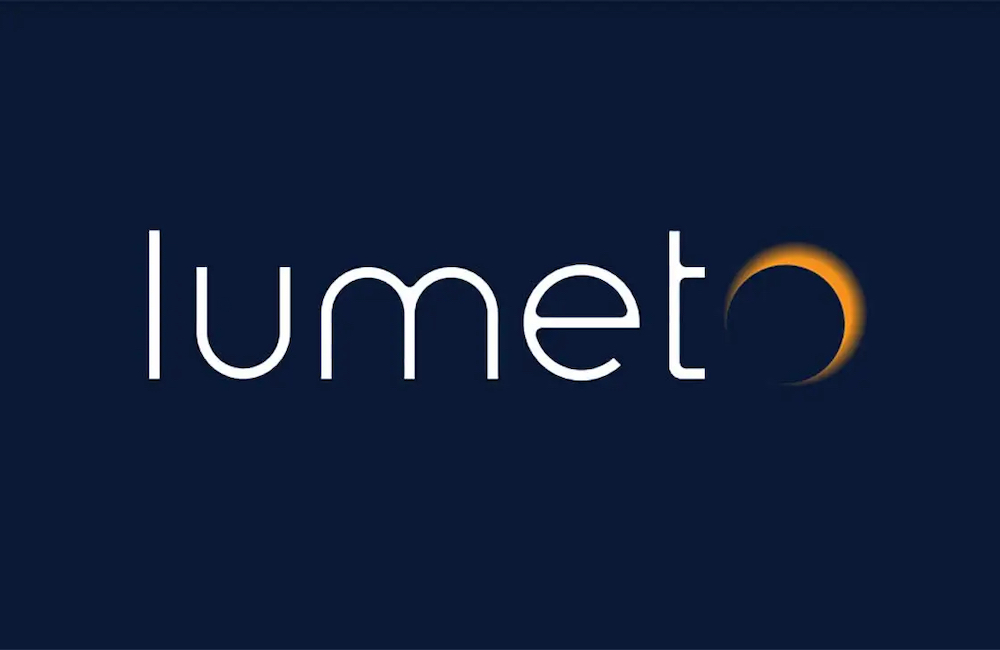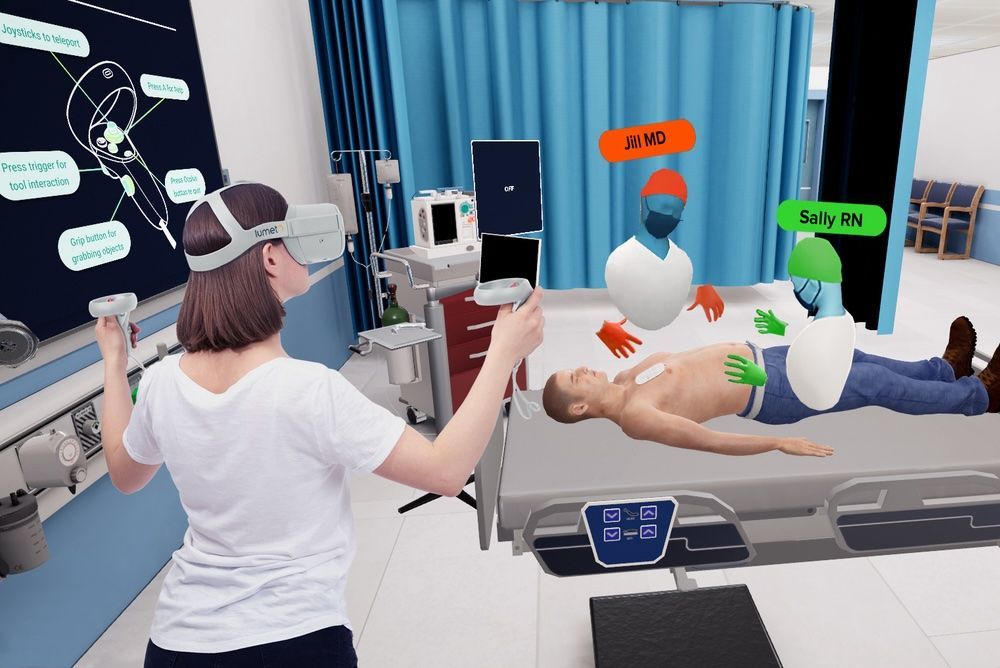Lumeto is a software development company that was founded in 2021 to enable the future of work through an advanced XR simulation, training, and skills assessment platform named Involve XR. The platform enables institutions looking to deploy data-driven, enterprise-grade, immersive training and assessment across their workforce. Headquartered in Toronto, Ontario, the company operates across the healthcare and safety fields, with the goal to enhance learning outcomes tied to individual and team decision-making, problem-solving, de-escalation, and complex procedures.
Ultimately, Involve XR enables enhanced levels of learner assessment and benchmarking, providing learners an efficient way to remotely re-skill, up-skill, and study in live, synchronous, immersive, scenario-based learning environments. An open and flexible learning & assessment platform, Involve XR offers customization without the need for code, and integrates into enterprise data and learning management systems.
Further, the platform operates as both a multi-user synchronous training and assessment tool, and asynchronous learning and practice platform, deployable in both training centers and directly to remote workers at home or in the field with low-cost hardware, or via flat screens.
Another feature of Involve XR is that the platform enables enhanced levels of the workforce and learner assessment as well as industry-level benchmarking. This provides learners with an efficient way to remotely re-skill, up-skill, and practice in live, synchronous, immersive, scenario-based learning environments. Lumeto emphasizes that the platform helps learners to:
- Learn by doing with the immersive platform
- Drive team growth faster and at scale through immersive learning
- Establish partnerships that drive measurable results
Usability and effectiveness are at the core of each learning experience in the InvolveXR simulation lab. Lumeto’s very first Virtual Reality (VR) lesson, CHEST Immersive Difficult Airway Management, which was co-developed with our partners at the American College of Chest Physicians (CHEST) was validated through an IRB-approved study across three institutions and showed impactful results.
According to Lumeto, despite 56% of learners have never tried VR, 73% found role play in intubation scenarios in VR easy. The company found that 100% of learners understood what steps to take when they first entered the virtual ICU.
In a session of 25 minutes, the company reported that there was a 16% relative increase in procedural knowledge of difficult airway management across all learners. There was also a 26% increase in procedural knowledge of difficult airway management in Residents. Then, based on two Difficult Airway Management training sessions that included moderator-led debrief in VR, 94%+ learners were able to:
- Describe risk factors, physical exam findings, and clinical situations associated with a difficult airway
- Demonstrate a systematic approach to patient evaluation, plan development with the appropriate equipment, and drug utilization prior to intubation
- Demonstrate effective management of a patient with a difficult airway
- Use crew resource management principles to effectively utilize an airway management team, maximizing success and patient safety during intubation
Lumeto Sandbox
An additional company offering, Lumeto’s synchronous, “sandbox” critical care training platform can be used, without modification, to teach hundreds of potential lessons, for an unlimited number of learners, remotely or in person. For example, Lumeto has partnered with subject matter experts to build a public safety and de-escalation “sandbox” that enables trainers to run learners through several de-escalation scenarios, ending in a robust skills assessment and scoring matrix.
One of these partnerships has been with Hamilton Police and Wilfrid Laurier University for the launch of a new Mental Health Crisis Response Training Program (MHCRT). The first in the province to offer the program, the training, which utilizes Lumeto’s immersive learning platform InvolveXR, provides officers with scenario-based learning in mental health crisis intervention.
Led by Wilfrid Laurier University researcher, Dr. Jennifer Lavoie, and Toronto Metropolitan University researcher Dr. Natalie Alvarez, the training was co-developed by Ontario-based community stakeholders, including people with lived experience of mental illness, advocates, clinicians, nurses, forensic psychologists, and Indigenous cultural safety and anti-discrimination experts, in partnership with police instructors from across the province.
According to Lumeto, InvolveXR replicates life-like environments for the MHCRT program and includes adaptive characters allowing officers to practice and learn de-escalation skills in fully interactive, immersive open-world scenarios. Overall, the system’s mission is to reduce live training costs, while being quickly deployable across locations and learners.
“Using virtual reality technology, trainees can step into highly immersive, and true-to-life environments reflecting settings familiar to police practice such as parks, private homes, or emergency rooms. The scenarios depict highly authentic characters portraying a range of mental health crisis situations. Officers actively take part in scenario-based learning where they can repeatedly practice safe alternatives to the use of force in high-intensity crisis simulations,” said Wilfrid Laurier Professor Dr. Jennifer Lavoie in a press release.
More About Lumeto
Lumeto is comprised of a team of creative leaders, XR developers, and software engineers who are passionate about how spatial technologies will revolutionize the future of work. The company is an inclusive, positive workplace anchored by our five core values: Learning, Teamwork, Initiative, Transparency, and Designing For Impact.
Lumeto is a two-time epic mega grant recipient leveraging the latest funding round in Kitware’s pulse physiology engine to incorporate real-time patient feedback. Lumeto’s immersive simulation lab is structured around a virtual and functional ICU environment, complete with physiologically-accurate intelligent patient avatars, interactive equipment, and life-like drug interactions.
Integrating the Pulse physiology engine enables the human physiology feedback required to improve the realism of training thereby enhancing the learning experience. Using a series of numerical models that are calculated in real-time and respond to user interaction, Pulse dynamically delivers accurate patient responses to trauma, disease, and treatment.
Another milestone reached by Lumeto, in the summer of 2021, eCampus Ontario chose a consortium led by the company, along with Laurentian University, Georgian College, and the Michener Institute of Education at UHN to receive $1.1 million in funding for the development of a nursing-focused virtual reality healthcare training program. The investment is among the largest amount awarded to any applicant for the eCampus Ontario VLS (virtual learning strategy) program. Learn more on the Lumeto website or by reading the articles below.








